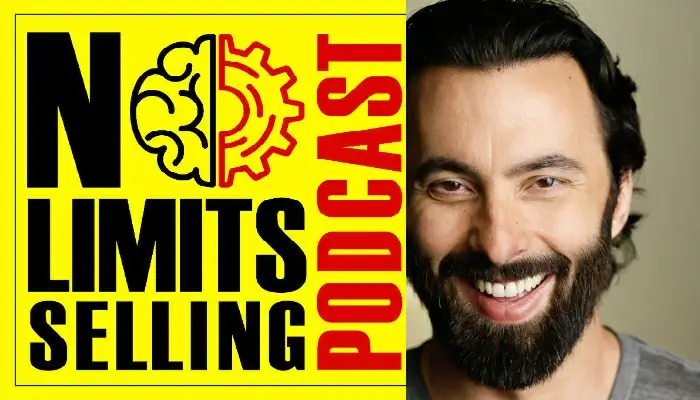Travis Steffen on How to Engineer Your Life
Travis Steffen, author of Viral Hero, is a serial entrepreneur with 7 successful exits to his name. As a growth engineer, he specializes in building products that grow themselves.
Travis currently lives in Los Angeles, and serves as the CEO of GrowFlow – an industry-leading, venture-backed suite of software products for cannabis companies. He is also an investor, advisor, and/or partner in several startups and venture funds.
MANY STOPS ALONG THE JOURNEY
Travis Steffen did not begin as an entrepreneur. An Iowa native, he started out as an athlete – first as a member of the football team at the University of Northern Iowa, and then as an MMA fighter. He also began playing professional online poker in 2008, before authoring his first book, Peak Performance Poker.
It was around this same time that Travis began his fascination with entrepreneurship. After starting his first two businesses while attending grad school, Travis would go on to start over a dozen more – leading 7 of them to successful exits. In 2019, Travis published his second book, Viral Hero, which is available now wherever books are sold.

Contact Travis:
[EDITOR’S NOTE: This podcast is sponsored by No Limits Selling. It is a fun, fast-paced podcast that delivers hard-fought business advice that you can implement today to improve your sales and performance]
Interested In Our Real Estate Coaching Services? Explore Our Website: Link
Feeling Not Well Today? You Can Use Our Mindset Boosters App To amp Up Your Mood: Link
Find us on Social Media:
LinkedIn | Facebook community | Instagram
Like what do you listen to? Subscribe to our podcast!
Ready to become fearless? We can help you become fearless in 60 days so you accomplish more in your career Schedule A 15 min Call with Umar
Summary
Introduction and Company Culture
The podcast features Travis Steffen, the CEO of GrowFlow, a company operating in the cannabis industry. Steffen discusses the importance of having a predefined culture and core values in a company. When he joined GrowFlow, there was no such culture or mission statement. The company had a strong product-market fit but needed to establish solid organizational fundamentals. Steffen and his team decided to make their mission to be the most helpful company in cannabis. This mission guides their strategic decisions and helps them focus on customer service and creating solutions that drive customer outcomes.
Leadership and Self-Care
Steffen also delves into the topic of leadership, referencing John C. Maxwell's five levels of leadership: Position, Permission, Production, People Development, and Pinnacle. He emphasizes the importance of each level and how they combine to create effective leadership. However, he also highlights an often overlooked aspect of leadership: the ability to manage one's own psychology. He argues that the effectiveness of a CEO or Founder is directly proportionate to their ability to manage their psychology. Given the high-pressure, high-stakes nature of leading a company, self-care and balance are crucial to prevent burnout and ensure the organization's success.
Productivity and Time Management
Steffen shares his unique approach to productivity and time management. He maintains a list of every task that takes time, not just those he needs to remember. This list is rank-ordered and batched, with tasks strategically placed to stagger cognitively challenging tasks with less demanding ones. This approach, which he likens to interval training for the mind, helps prevent burnout and increases productivity. He also uses alarms as reminders to eat, as he might forget due to his busy schedule.
Customer-Centric Approach
The podcast emphasizes the importance of a customer-centric approach in business. Steffen explains that the company's revenue is viewed as a byproduct of treating the customer well and creating solutions that drive customer outcomes. This approach has helped GrowFlow become a successful business in the cannabis industry.
Conclusion
In conclusion, the podcast provides valuable insights into effective leadership, the importance of company culture, and innovative approaches to productivity. Steffen's experiences and strategies offer a unique perspective on running a successful business in a rapidly evolving industry.
Questions & Answers
Who is Travis Steffen?
What was the state of GrowFlow's company culture when Travis Steffen joined?
What is the mission of GrowFlow?
What are John C. Maxwell's five levels of leadership that Travis Steffen referenced?
What does Travis Steffen say about the importance of self-care in leadership?
How does GrowFlow approach customer service?
Don’t miss this opportunity to transform your real estate career with one-on-one coaching. As an experienced real estate coach, I, Umar Hameed, am dedicated to helping you unlock your full potential and achieve your real estate goals. To learn more about who am I and my clients ↓
If you’re ready to take the next step, book an appointment with me today and begin your journey toward success in the real estate industry.
